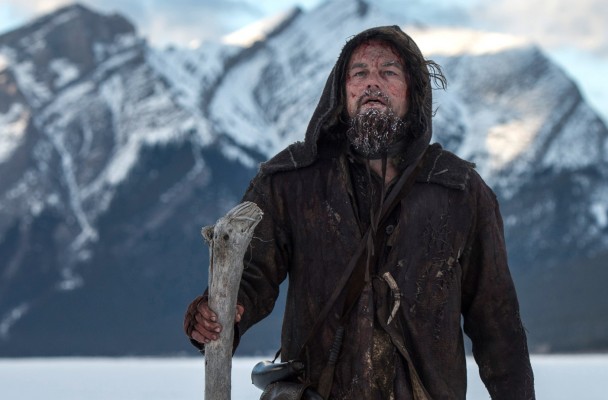Iñárritu’s “Revenant” lacks excitement and action

By Liz Reichart// A&E Editor
There was no other film released this year that received quite as much hype as the screen adaptation of Michael Punke’s “The Revenant.” A production bejeweled with the promise of supreme talent – most notably Oscar-winning director Alejandro Iñárritu and frequent Oscar nominee/heartthrob of Titanic lovers everywhere Leonardo DiCaprio – “The Revenant” trailers promised a bloodied, action-packed revenge story about family and the recapture of sovereignty.
Two and a half hours later, I too felt betrayed- not like the heroic fur trapper Hugh Glass who is left to die after a vicious bear attack, but more like a child who was promised candy and was instead given dried fruit. Without getting a bloated head, I genuinely feel as though I’m the type Iñárritu should have been gearing this flick towards (overlook for a minute the idea that artists can and do make their own art for the satisfaction of themselves alone). I’ve read the novel, I border on being labeled a Leo DiCaprio fan girl and I’m a high key nature-lover.
Instead of weaving a rich and intricate narrative, Iñárritu made this film about an hour too long with irrelevant tangents into nature and a plot that wasn’t fully cohesive. The spiritual elements Iñárritu interjected felt forced and inconclusive.
The film falls off a cliff after the first half an hour and, unlike our hero, it doesn’t have a horse carcass to cut open and warm itself up in. The most prominent difference between Punke’s novel and the film, was an unfortunate and glaring one. While viewing the piece, I wasn’t under the constant anxiety that was present when I read- Glass’ pressure to kill, reclaim and right the grave injustices committed against him. None of that was present; the action was too sporadic and the gaps scattered between either lulled me to sleep or perplexed me.
Despite any plot irrelevancies, it is, simply put, a beautifully shot film. Touted for being captured on location in Canada, Iñárritu’s artistic sensibilities are fingerprinted across wide-sweeping shots of frozen wilderness. Magically lit, the whole film is a glorious delight to the visual senses, which is ironically, what the novel most notably lacked. A bare-bones account of a real-life fur trapper, Punke’s “The Revenant” is full of action but void of lush Northern Minnesota description.
The camera work in this film is of the highest caliber with continuous 360-degree shots that feel unbroken for ten minutes at a time. This feature alone, I am convinced, is why it has drawn nominations and wins from the Oscars and Globes respectively.
Anchoring the film was a dazzling performance by DiCaprio. Despite spending 90 percent of the film gargling blood, his bodily and emotive transformation easily leaves viewers bewildered. His plight is ferociously grueling and you’ll think twice before going on that camping trip next month.
Much deserving of his recent Golden Globe for Lead Actor in a Drama, Leo and the rest of the world wonder if perhaps this will be the year that elusive first Oscar will come into grasp. My bet is in favor and I’m only made more certain by the fact that DiCaprio was one of the only laudable characteristics of the film.
“The Revenant” quite simply leaves viewers frustrated and hanging in some gruff purgatory of snow and blood for an eternity too long. Even a daring performance from DiCaprio and fearless camera work can’t cover up the half-dead corpse of a plot buried, struggling in the dirt.